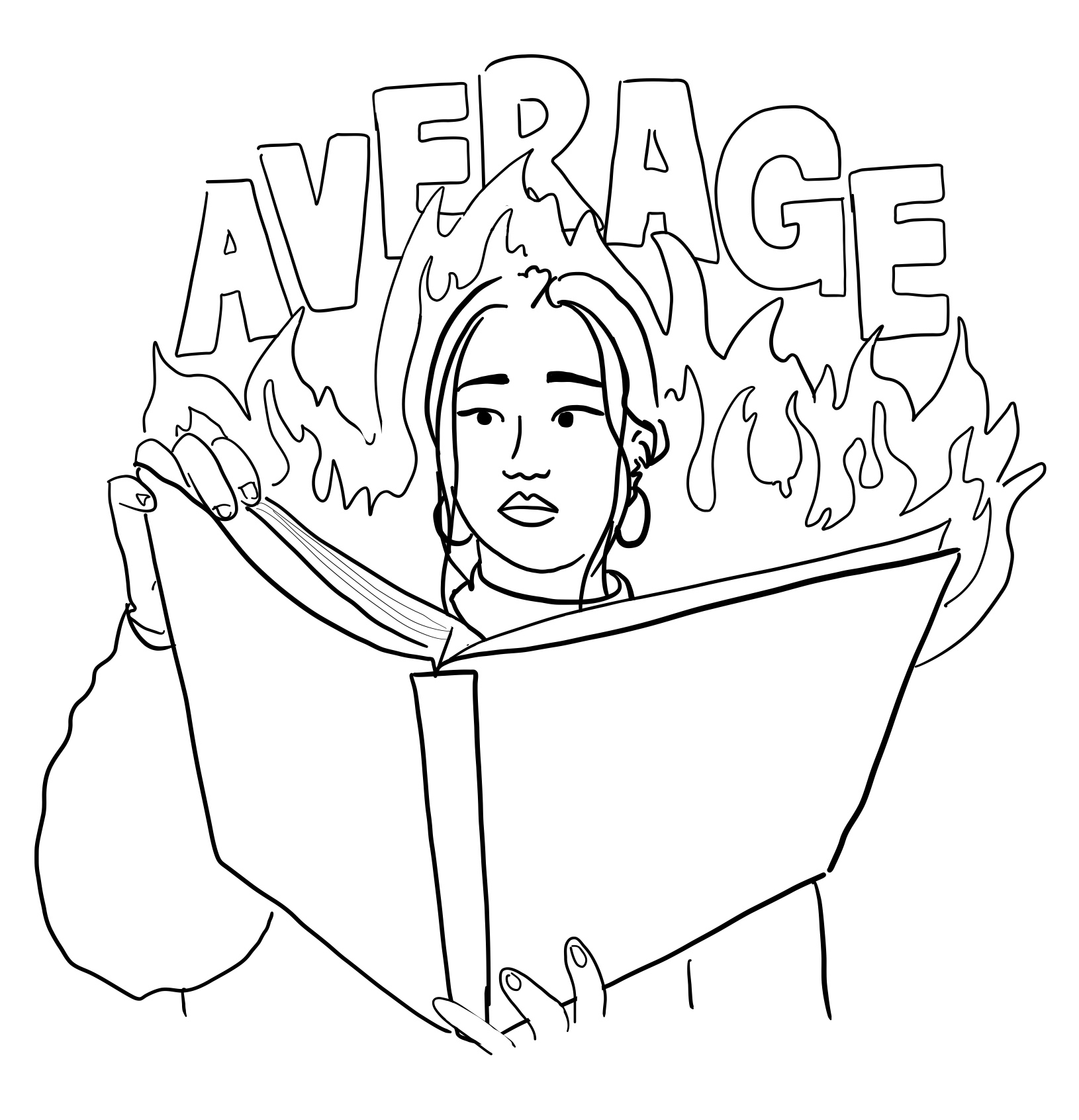
Dora Guo
Embracing Average
“Out of the four candidates I saw this week for early action, she was by far the least impressive given the context of the highly competitive Yale applicant pool.” What do you do with a sentence like that? Let it sit on your tongue and dissolve like one of those satellite wafers, leaving a taste in your mouth one could only describe as rejection? No. You spit it out, choking on the words as you laugh at their absurdity.
When I went to view my admissions file, it wasn’t momentous. There were no winding, foreboding hallways and doors with secret passcodes, only a room filled with sunlight right by the lobby of the Admissions Office. A member of the admissions team took my student ID and handed me my file from a plastic box (where it was just one amongst the highly competitive Yale applicant pool). “You have 30 minutes, no pictures, but you can take notes,” she said before handing me a legal pad.
The file was thin — why was it so thin? My entire application had been reduced to a series of numbers and letters which I could barely make sense of. Every aspect had been given a rating out of nine for each of the two application readers, except for my overall rating which was out of four. TR 1: 6/9. EC: 5/9. CR 6/9. These numbers didn’t strike me as particularly Yale. They were average. Slightly above average, and Yale wasn’t slightly above average.
When I flipped the page, it was kind of like being slapped in the face. “She didn’t strike me as thoughtful, introspective or determined.” Repeatedly. “I couldn’t figure out what she was passionate about.”
I couldn’t help but laugh. “Bitch,” I muttered under my breath, drawing the stares of the students around me. I knew the alumni interview had gone badly, but I didn’t think it had gone that badly. The interview could only help you… right? We had gotten into a disagreement about politics, specifically Brett Kavanaugh, who was a hot-button issue at the time I was applying. But I thought that this showed her that I wasn’t afraid to disagree with authority, not that I was “saying what she wanted to hear.”
So what brought me to Yale? What saved me among the highly competitive Yale applicant pool? Quite honestly, I’m still not sure. There was nothing illuminating about my admissions file, nothing that either of the readers said that made me think, “Wow, I definitely belong here.”
When my 30 minutes were over and I walked out onto Hillhouse Avenue, I had the sudden realization that for Yale I was average — slightly above average. Yale needs a few of us slightly above average 6’s to let you 8’s and 9’s shine. So with that, you’re welcome.
Alexandra Gers | alexandra.gers@yale.edu
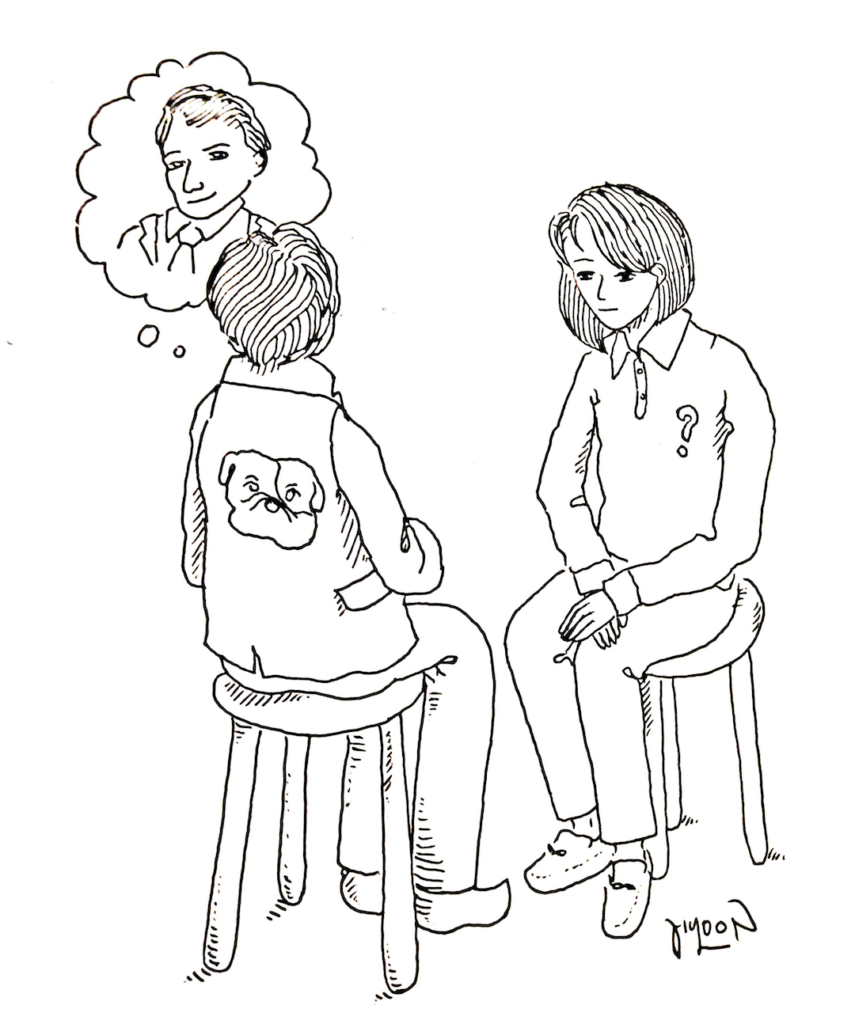
Mommy Issues
The best part of my admissions file had nothing to do with me, and everything to do with my alumni interviewer. 😉
Before you get ahead of yourself, NO, that wink is not sexual! And NO, I did not try to kiss my interviewer! I left that glorious job for a prepubescent sadboi on Reddit who never learned the meaning of “stay in your lane.”
All I’m saying is that this ethnic studies professor had some ~spicy~ takes, including calling out Yale for its historic investment in white supremacy, which while I agree with, we never discussed in our interview. In fact, I don’t remember discussing most of the things he brought up in his report: my hometown’s two-percent Black population, the racist encounters I probably had and my perseverance through it all. All true, but all unmentioned.
These comments bled into my readers’ notes, painting this image of me as some sort of “social justice warrior.”
“Very quest bridge,” one reader noted. “With a strong social justice resolve.” L O L.
This was their coded way of saying: “GUYS!!! SHE’S BLACK AND POOR.” (The #MOMMYISSUES comments didn’t come until later, when they began analyzing my Common App essay on intergenerational trauma.)
This uncomfortable tokenization was balanced out with a long list of compliments pulled from rec letters. And then, to put my raging narcissism in check, a series of concerns about my iffy STEM background. “Math is always the problem,” one admissions officer wrote. Funny how some things never change.
Surprisingly, no one cared about my extracurricular activities. But for some reason, they cared I was “well-read.” (Funny how some things do change.) I thank my interviewer for this saving grace.
“Kiddest confessed she was embarrassed how much she liked ‘Catcher in the Rye,’” he wrote. “I reassured her that I loved the book as a young person, too, and that she’ll probably meet a Holden Caulfield or two if she goes to Yale. Maybe.”
I considered emailing him a screenshot of my Tinder matches, just to like, validate his theory, you know? But then I remembered prep school boys don’t fuck with melanin.
TLDR: Find yo’ self an alumni who roasts Yale, and you might just get accepted?
Kiddest Sinke | kiddest.sinke@yale.edu
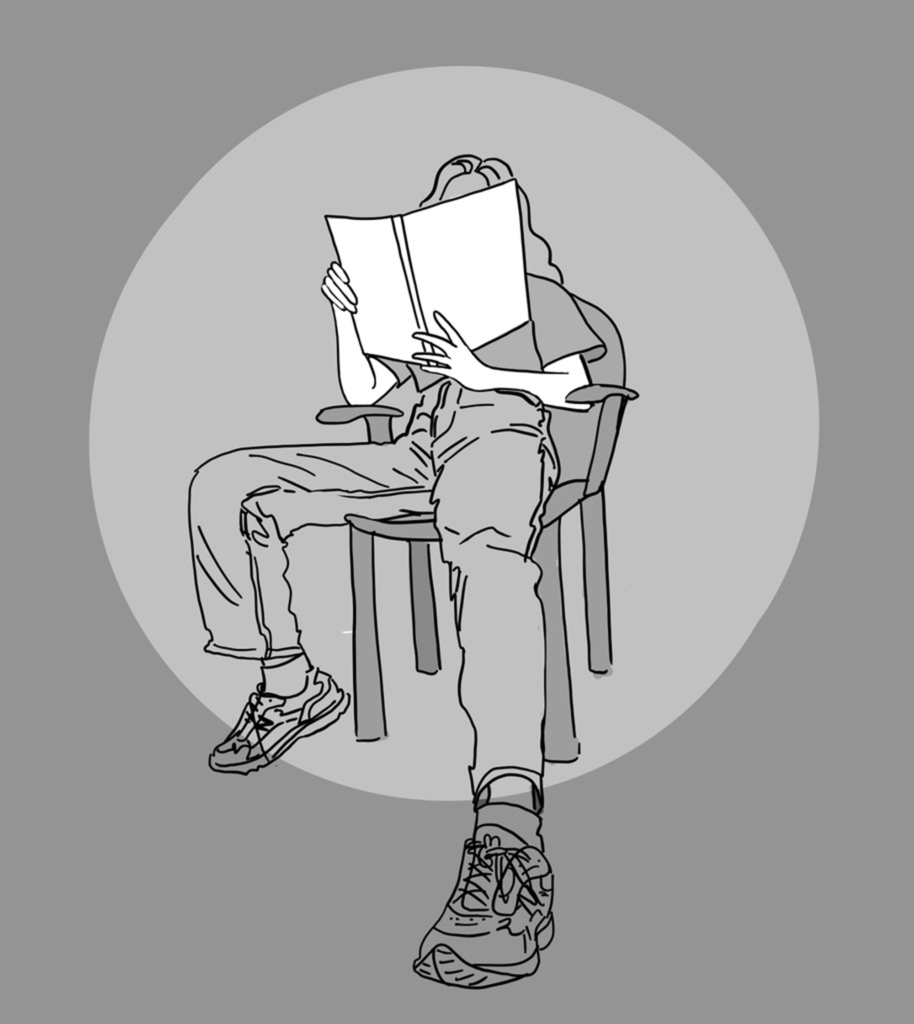
Slow Roasting Compliments
When I got to Yale, Dean Eileen Galvez and several others repeatedly told me, “You belong here. Remember that.” I remember thinking, “Of course I belong here, the admissions committee accepted me.” I searched around the web seeing how I could get access to my admissions records, but instead I found discouraging posts warning, “Don’t do it, you’ll only feel bad about yourself.” Anyway, after one-and-a-half months of waiting, I finally saw my admissions file. Walking to the Undergraduate Admissions Office, I couldn’t help but feel a little nervous. You’re not allowed to bring any electronics inside so I only had a pen and paper to write down notes. First, there’s a page of random acronyms that later come in handy when you’re looking at all the numbers the committee used to analyze and rate you, your recommendations, and extracurriculars (usually out of 8 or 4, but my friends have said other things). They also have a page of your high school statistics, which was really surprising (the highest GPA was 98.80, unweighted, and I know who the valedictorian is. You go girl!)
The process of actually reading the file was very emotional though, as I remembered the process of writing each draft of my supplements. It felt weird to receive all this feedback A whole year later, a response to my response.
The first reader, my admissions officer, was super generous. She wrote down partial quotes from my recommendations which made me want to read them (ahh but I waived my rights to read them) and said, “a great Yale fit. Should be an easy admit.” I thought “Whoa, what?” They also used odd abbreviations, one of them being “oomhw and zealous students I ever met.” I assume a lot of recommendations include “one of the most hard working students…” so the admissions office found a quick abbreviation for that. Pretty genius, albeit weird for someone who doesn’t work in admissions.
Other comments made me realize some slight errors I’d made in the application process that I hadn’t even noticed myself. My interviewer low-key roasted me for not asking more than two questions at the end, but that’s her problem. My extracurriculars were “average,” or more precisely a 5 on their grading scale. I felt slightly hurt, but I think that just means I was on par with all the other applicants and since I didn’t find a cure for cancer, a person with solid extracurriculars gets a 5.
In my opinion, viewing your admissions file should mainly stroke your ego. It’s all very contradictory because everyone has different opinions, which is why you shouldn’t take their judgments to heart; just believe in yourself! You’re already here anyway. If your admissions file wasn’t perfect, then see those imperfections as a way to advise or warn others. I never expected that two questions weren’t enough to ask an interviewer, but maybe I should feel it out and ask three questions next time. This does not mean I am unqualified. I never once doubted whether I belong here, and I advise that you feel the same way.
Samantha Adrianzen | samantha.adrianzen@yale.edu
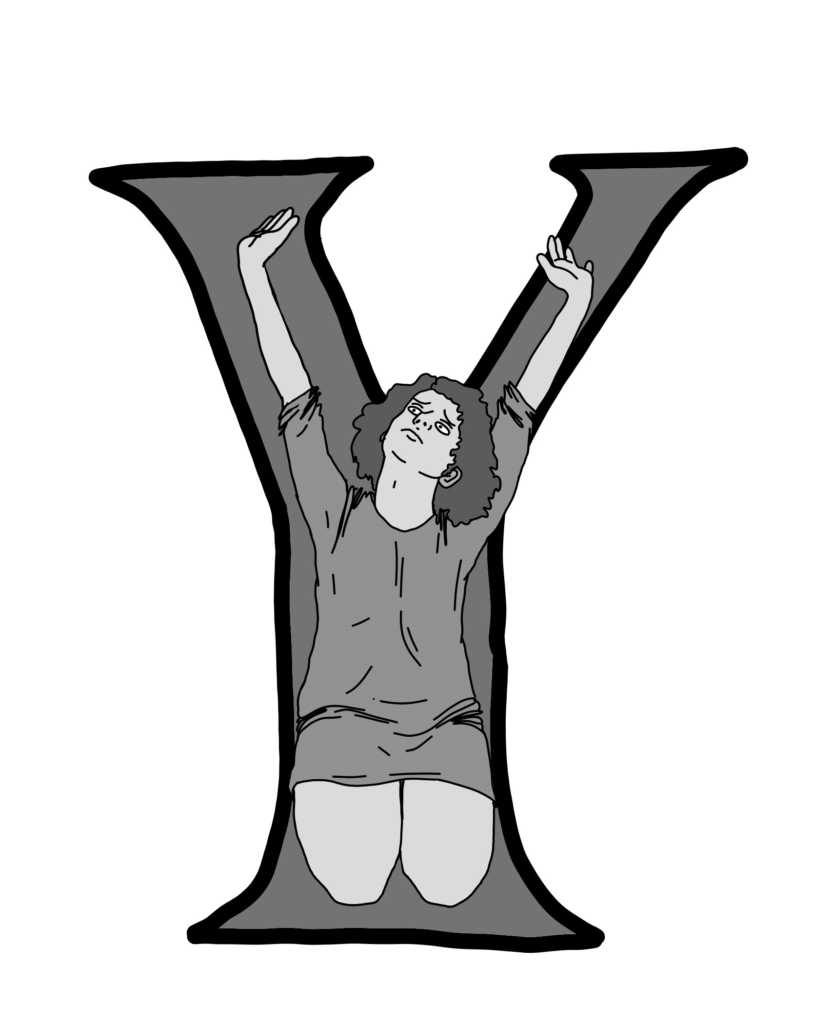
New Body Type: Y-Shaped
There were over 36,000 applications to Yale last year. I don’t know why I’m one of the few who got in. Under the Federal Education Rights and Privacy Act, all college students have the right to view their academic information, including their admissions records. When I got to Yale this past fall, I exercised this right as soon as possible. I hoped my admissions file would provide some answers.
I wasn’t scared of the readers’ comments. Spoiler alert: I got in. The admissions committee had to have liked something about me. I was self-aware enough to have vague expectations. I wasn’t the best at extracurriculars in high school, but I was proud of my essays, my Yale interview went well and I’m a first-generation college student from a high school that consistently produces Ivy Leaguers.
In many ways, I was right. I did indeed score low on extracurriculars. Both readers responded strongly to my writing and the way I presented myself. (I’m an enneagram type five, a history buff, and I’m not like other girls.) They referred to me as “intellectuYale” and “Y-shaped.” For a school insistent on debunking the myth that there is no typical Yale student, they seem to have a clear idea of their ideal mold. My first reader said I seemed to have issues with interpersonal relationships, and the second questioned my self-confidence. If they could tell I’m antisocial and anxious, I must have been better at communicating my personality than I initially thought.
The importance of recommendation letters and alumni interviews was surprising. Admissions officers seemed to care more about how others perceived me than my own self-construction. Rumor has it that college interviews aren’t that important. My second reader wrote that if my interview aligned with the rest of my application, they would admit me. After reading this, I wanted to call my interviewer and thank him.
My background was indeed influential. A label at the top of one of the sheets, next to a number coded to imply my parents’ education level, noted that my application was pulled from the “diversity bin.” Regardless of my first-gen status, the notion that I, a middle-class white girl, could be labeled diverse was deeply uncomfortable. (As was the comment that my application featured “top-notch writing for any pool.”)
Maybe my imposter syndrome saved me from a blow to the ego, but I don’t think I learned anything noteworthy about myself or about this process. I don’t know that I would necessarily recommend reading your admissions file to others, either. College admissions reduce an individual to a collection of statistics and summaries. Viewing your admissions file forces you to accept this. As much as I would like to hand a foolproof formula to every high school senior who asks me how I got into Yale, I can’t. There is no secret. My alumni interviewer told me that most Yale applicants have the potential to thrive here in New Haven. In the end, getting into Yale was a crapshoot that was out of my control the second I pressed submit.
Jordan Fitzgerald | jordan.fitzgerald@yale.edu
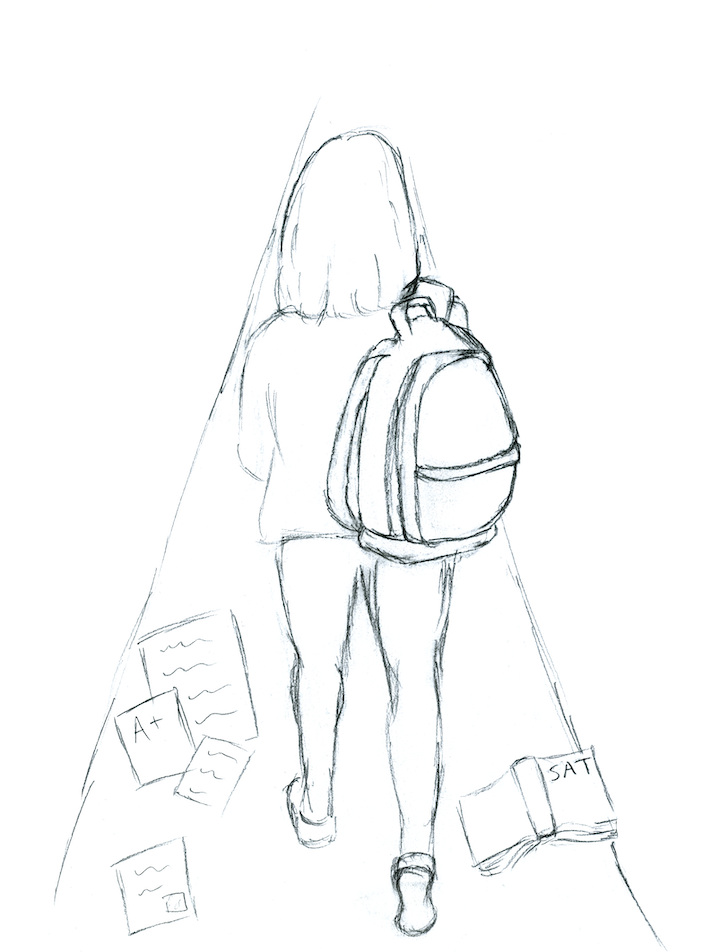
Capacity for Connection vs. Calculus
I remember Ivy Day acutely: I woke up hours before my alarm went off with a churning in my stomach, my mind filled with a storm of self-doubt, swirling with questions of “why me?” “Why, out of literally everyone, would they take me?”
Reflecting 11 months later, I can still feel the tightness in my chest and the flock of butterflies in my stomach. Even now, the same questions I asked myself still linger in my mind, but instead of why would they take me, it’s why did they?
So, I decided to try to find answers. After sending an inquiry in the midst of reading-week procrastination, I headed to the Office of Undergraduate Admissions to exercise my FERPA rights. I delved into my file first looking at the numbers: one through nine for interviews, activities, along with various other factors, and a one to four for overall ranking. I didn’t think my parents’ education could have a number, but now it did; everything in my application was put into boxes and scored. I wasn’t Erin Bailey anymore, I was just an applicant from Colorado who got some score out of 9 in their extracurriculars, whatever that means.
Then were the comments. While I waived my right to see my letters of recommendation, the comments from my readers gave me a glance into them. It was all very complimentary. They included my teachers’ ranking of me and their notes about me as a student: thoughtful, hardworking, helpful. Like most of my peers, I worked hard in high school, got good grades and didn’t cause trouble, but I didn’t realize how much my teachers had noticed.
What I wasn’t expecting was something in my college counselor’s letter the reader referenced. She said in her letter that I’m shy and closed off at first, but I open up over time and am a caring person. I’m choosing to believe she meant it as a compliment, but it prompted one of my readers to pose the question of whether or not I would find friends at Yale, if I would find a community or close myself off. This was new to me, and I was not expecting to find this, of all things, in my file. The whole time while I was worrying about my calculus grade junior year, the downfall of my application could’ve been my perceived capacity for connection. While I don’t consider myself the most outgoing person, I thought I was friendly, right? I have a lot, or at least an average amount of friends, here at Yale, right?
It was clear from the notes, the first reader liked me a lot more than the one asking if I was capable of friendship, but I still can’t help but wonder if reader #2 was correct. Maybe I’m not the warmest, fuzziest person at first, but I warm to people after time. Even then, I don’t consider this to be a weakness. I may not be one to form superficial bonds, but again, I don’t think that is a flaw in my character. I’ve found a community and made plenty of connections at Yale that run deep and took time to foster; in that regard, I think I defied reader #2’s expectation.
The file continued with the letter from my alumni interview. It brought me back to the library where my interview took place. At the time, I didn’t feel like I made that good of an impression on him, but reading his report, I think he understood me more than I realized. He mentioned all of my activities and emphasized how much effort I put into them, commending my humility and passion, going on to say that he could see me at Yale. It struck me though, that he said I lacked passion for one thing: Yale. This was true back then; I hadn’t visited campus before applying, and scrolling through Yale’s Wikipedia page in my car 15 minutes prior wasn’t quite adequate preparation. I can’t blame myself — I didn’t want to “catch feelings” for any school in the college application process. Nonetheless, he said this shouldn’t be held against me, and rather affirmed to him that I would be a good fit at Yale, I just didn’t know it yet.
Looking at the numbers and the comments didn’t give me the answers I expected, but it did give a glimpse into why I’m here. I have no regrets about going to see my file, but maybe I should’ve been more enthusiastic when I first met my college counselor.
Erin Bailey | erin.bailey@yale.edu







